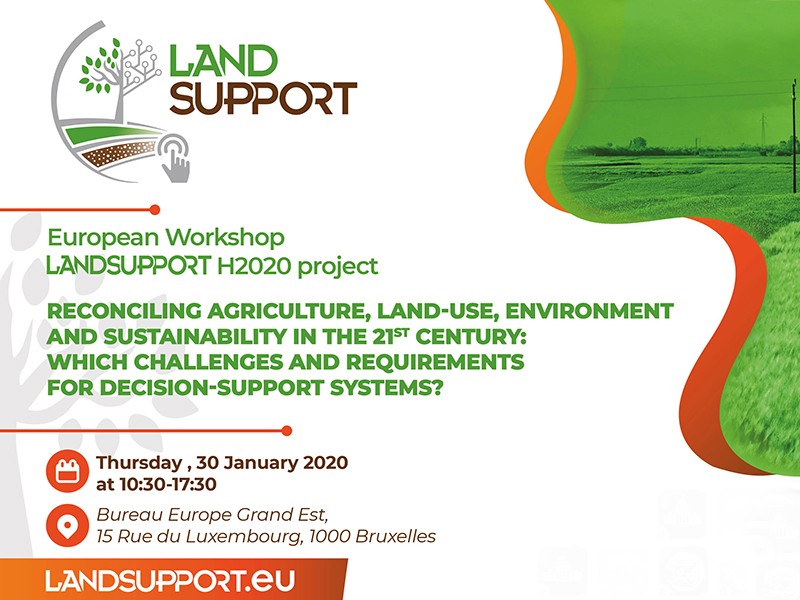Reconciling agriculture, land-use, environment and sustainability in the 21st century: which challenges and requirements for Decision-Support Systems?

The absence of truly integrated approaches to many agricultural and environmental problems is considered as part of the problem. Indeed, models and tools designed to support the development of policies and strategies (short-named Decision Support Systems or DSS here) address often part of the system only, not considering e.g. all relevant causal relationships between economic activities, land use and nature. This results in policies and strategies that do not fully account for reality in terms of the likely effectiveness of proposed measures or unexpected social, environmental and economic impacts.
Many factors can explain the gap between existing DSS and DSS that would effectively provide the right factual support to choices and decisions – including in terms of land use practices and management that farmers (land-owners), forest managers or local planners would need to adopt to ensure sustainable use of land and other resources.
Key challenges addressed in the workshop include:
- How DSS tools are – and should be – designed to account for (potential) end-users' requirements? (with specific reference to end-users mobilisation, living labs and co-building)
- Which biophysical and socio-economic processes should be "captured" in DSS to enhance their relevance and value? Is there an interest in making services delivered by ecosystems – and their social and economic values – part of such DSS platforms?
- Which social, economic and environmental indicators are seen as relevant to "support decision" – for whom and for which decision(s)?
- Which pre-conditions for DSS to be (a) considered, (b) used and (c) useful in supporting decisions? In particular, which (forward-looking) challenges and (policy/management) options should be accounted for in DSS developed today so they can support future developments of the EU policy framework?
The workshop targets representatives from different land use communities, in particular:
• Operational stakeholders of territories which activities directly influence land use – e.g. professionals from the agriculture, forest management and urban development sectors; nature protection managers; services from government and local authorities; civil society organizations…
• Researchers representing a diversity of disciplines relevant to land-use: natural sciences, agronomy, forestry, geography, urban & landscape design, social sciences and economics…
• Decision makers at different scales (from local to European) in charge of the development and implementation of strategies and policies affecting (directly or indirectly) land-use
This one-day workshop (from 10:00 to 17:00) will have a strong operational and practical focus. It will combine plenary sessions, time for individual thinking and interactive group work, and demonstrations of selected decision support tools. It will build on results and experiences from the LANDSUPPORT partners as well as experiences from other research, demonstration and operational projects.
Keywords
sustainable agriculture, landuse, modelling, decision support systems, end users engagement, co-creation, agricultural policy, ecosystem services, trade-offs


